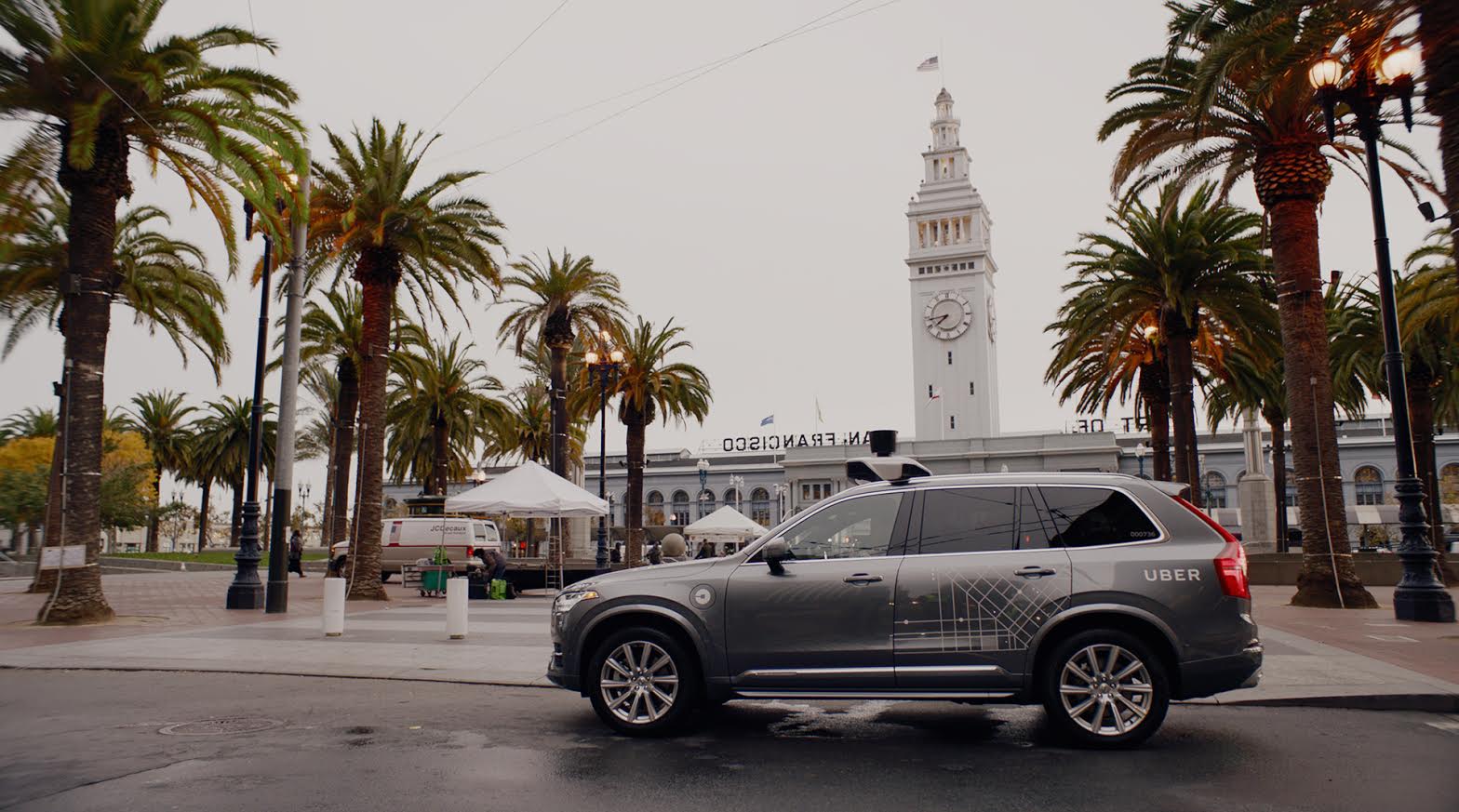 EMERGING TECH
EMERGING TECH
 EMERGING TECH
EMERGING TECH
 EMERGING TECH
EMERGING TECH
Uber Technologies Inc., forced to suspend its self-driving car pilot program in San Francisco after the California Department of Motor Vehicles revoked the registration on the company’s vehicles, said Thursday it’s moving the pilot to Arizona.
“We’ll be expanding our self-driving pilot there in the next few weeks, and we’re excited to have the support of Governor Ducey,” the company said in a statement.
California’s DMV recently requested that Uber apply for permits that would classify its self-driving cars as test vehicles, but the company refused, and Uber Vice President of Engineering Anthony Levandowski explained why in a statement released last week.
“The regulations apply to ‘autonomous vehicles.’ And autonomous vehicles are defined as cars equipped with technology that can — and I quote — ‘drive a vehicle without the active physical control or monitoring by a human operator,'” Levandowski said. “But the self-driving Ubers that we have in both San Francisco and Pittsburgh today are not capable of driving ‘without … active physical control or monitoring.'”
Levandowski compared Uber’s self-driving car system to Tesla’s autopilot, but it seems that California regulators are not convinced. So Uber has been forced to suspend its pilot program until it applies for the test vehicle permits. Uber suggested in a statement that rather than obtaining the permits, the company might instead move its program elsewhere and attempt to fight the DMV’s decision.
“We’re now looking at where we can redeploy these cars but remain 100 percent committed to California and will be redoubling our efforts to develop workable statewide rules,” an Uber spokesperson said in a statement.
Uber’s self-driving car program has been around for barely one week, but in that time the company has already made it into the headlines a few times for alleged safety issues with its system. In fact, an issue arose on the first day of the program, with several reports that self-driving Uber cars had been spotted running red lights around the city.
The San Francisco Bicycle Coalition also issued a warning to cyclists about the tendency for Uber’s cars sometimes to ignore bike lanes. Uber subsequently admitted that its vehicles have a “problem” recognizing bike lanes, and the company said that its engineers are working to resolve the issue. Chris Cassidy, a spokesperson for the Bicycle Coalition, said that is not good enough.
“The fact that they know there’s a dangerous flaw in the technology and persisted in a surprise launch shows a reckless disregard for the safety of people in our streets,” Cassidy told The Guardian.
Support our mission to keep content open and free by engaging with theCUBE community. Join theCUBE’s Alumni Trust Network, where technology leaders connect, share intelligence and create opportunities.
Founded by tech visionaries John Furrier and Dave Vellante, SiliconANGLE Media has built a dynamic ecosystem of industry-leading digital media brands that reach 15+ million elite tech professionals. Our new proprietary theCUBE AI Video Cloud is breaking ground in audience interaction, leveraging theCUBEai.com neural network to help technology companies make data-driven decisions and stay at the forefront of industry conversations.